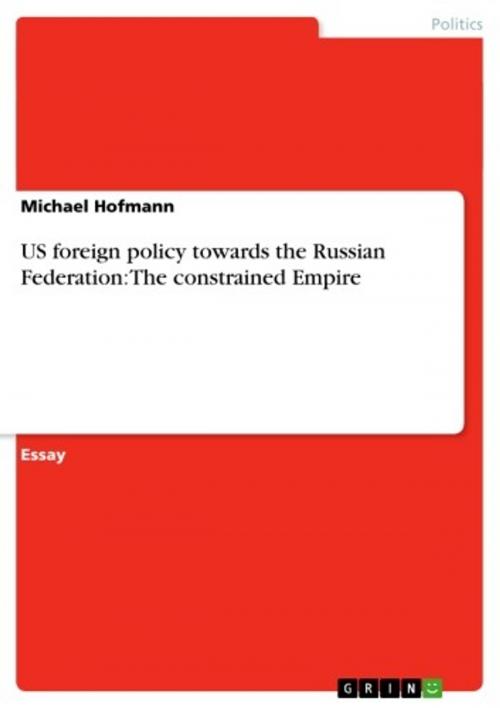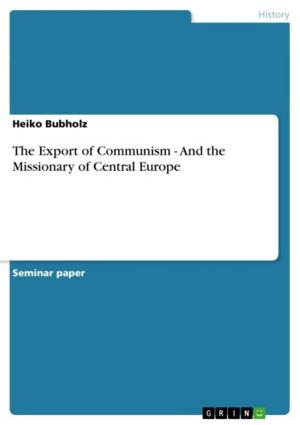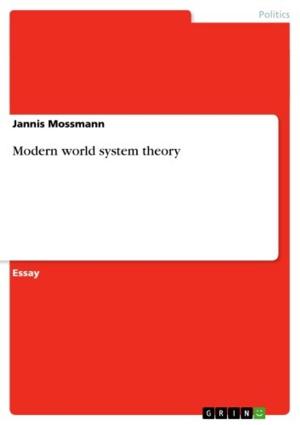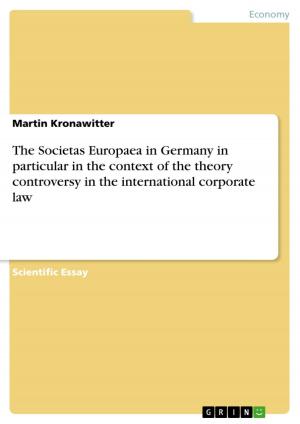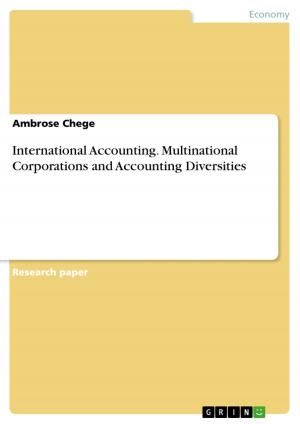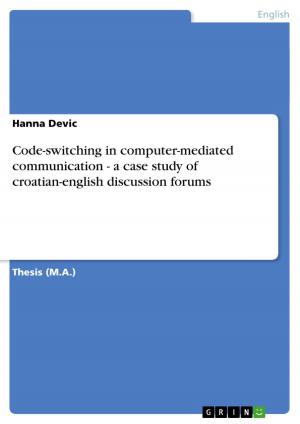US foreign policy towards the Russian Federation: The constrained Empire
Nonfiction, Social & Cultural Studies, Political Science| Author: | Michael Hofmann | ISBN: | 9783638755672 |
| Publisher: | GRIN Publishing | Publication: | June 13, 2007 |
| Imprint: | GRIN Publishing | Language: | English |
| Author: | Michael Hofmann |
| ISBN: | 9783638755672 |
| Publisher: | GRIN Publishing |
| Publication: | June 13, 2007 |
| Imprint: | GRIN Publishing |
| Language: | English |
Essay from the year 2006 in the subject Politics - International Politics - Region: USA, grade: 65 (UK system), University of Kent, 0 entries in the bibliography, language: English, abstract: The end of the cold war in 1989 and 1990 appeared without warning. The upheavals that followed the fall of the Berlin Wall were dramatic. Within less than one year since November 9, 1989 the three Baltic states declared their independence from the Soviet Union (S.U.) as did Uzbekistan, Moldova, Ukraine and Belarus. Finally, on October 3, 1990 Germany announced its reunification. At the beginning of 1992, the S.U. ceased to exist. In place of the Soviet empire, the Commonwealth of Independent States (CIS) was established, bringing together eleven of the fifteeni constituent republics of the S.U. Having constituted the dominant republic of the S.U. and being regarded as its successor state, the Russian Federation had suddenly lost its status as a superpower and its role as a competitor, ideological and political, of the United States of America (USA/U.S.). However, and 15 years afer the end of the S.U., this essay will argue, the USA is not in a position to influence Russia's domestic behaviour in a way that is coherent with its liberal foreign policy doctrine. Strategic interests and internal as well as external constraints are the reasons why the U.S. has abandoned many of its foreign policy objectives in regard to Russia. In order to develop this argument, the first part of the paper will shortly outline U.S.-Russia relations since the end of the cold war. Then, the current underpinnings of U.S. policy towards Russia will be analysed. Particularly, the reasons for America's non-engagement approach will be addressed
Essay from the year 2006 in the subject Politics - International Politics - Region: USA, grade: 65 (UK system), University of Kent, 0 entries in the bibliography, language: English, abstract: The end of the cold war in 1989 and 1990 appeared without warning. The upheavals that followed the fall of the Berlin Wall were dramatic. Within less than one year since November 9, 1989 the three Baltic states declared their independence from the Soviet Union (S.U.) as did Uzbekistan, Moldova, Ukraine and Belarus. Finally, on October 3, 1990 Germany announced its reunification. At the beginning of 1992, the S.U. ceased to exist. In place of the Soviet empire, the Commonwealth of Independent States (CIS) was established, bringing together eleven of the fifteeni constituent republics of the S.U. Having constituted the dominant republic of the S.U. and being regarded as its successor state, the Russian Federation had suddenly lost its status as a superpower and its role as a competitor, ideological and political, of the United States of America (USA/U.S.). However, and 15 years afer the end of the S.U., this essay will argue, the USA is not in a position to influence Russia's domestic behaviour in a way that is coherent with its liberal foreign policy doctrine. Strategic interests and internal as well as external constraints are the reasons why the U.S. has abandoned many of its foreign policy objectives in regard to Russia. In order to develop this argument, the first part of the paper will shortly outline U.S.-Russia relations since the end of the cold war. Then, the current underpinnings of U.S. policy towards Russia will be analysed. Particularly, the reasons for America's non-engagement approach will be addressed
